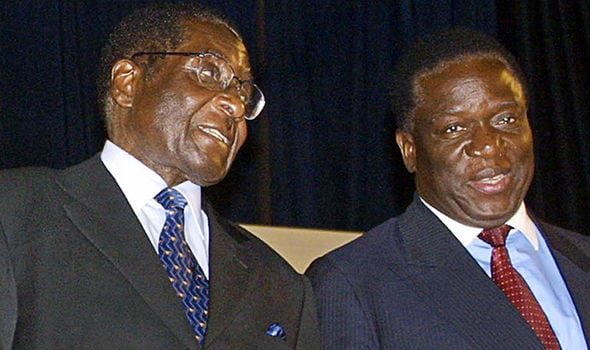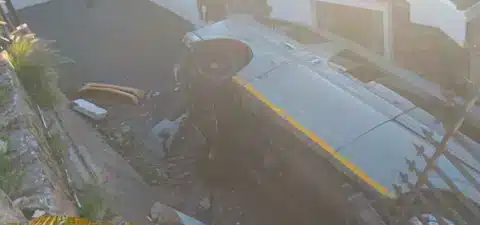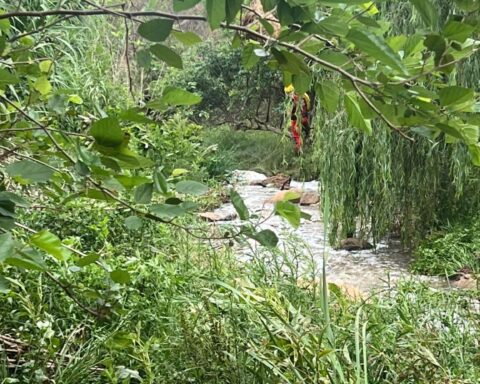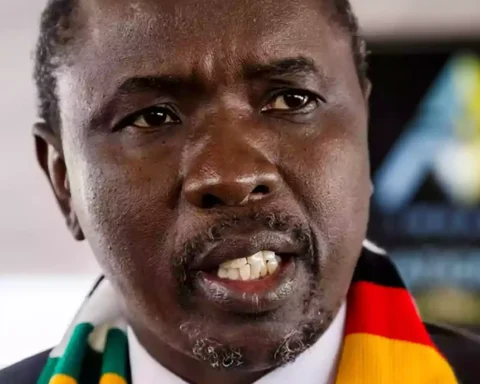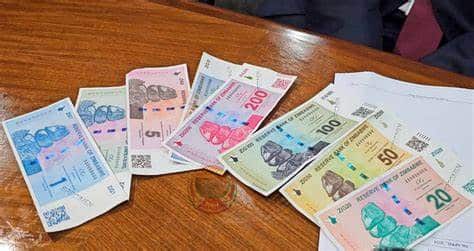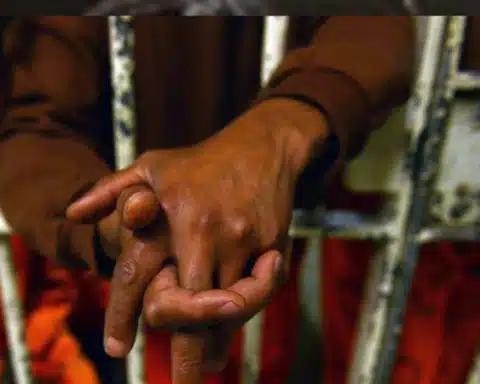The past few days have left me awestruck. I witnessed many things I have never seen in Zimbabwe since my birth and learnt more about my fellow countrymen than ever before. It was surreal and monumental.
In the midst of the excitement and bewilderment, something kept lurching onto my mind. Contrary to the general sentiment of victory, I was clear that it was not victory yet.
Undermining the ominous reality of being a recipient of rebuttal, hatred and insults for my ‘unpopular’ position, I still unflinchingly made it known whenever I got an opportunity to do so.
Even when I addressed thousands who gathered for a ‘Mugabe Must Go’ rally at Zimbabwe grounds, I did not flinch from my position. I reminded the nation that removing Mugabe was not the end and that we had not arrived yet.
Mugabe the person vs Mugabe the system
That Mugabe was and is viewed as a god by some is not an exaggeration. In fact, even his wife declared at some point that he would rule from his grave. Many of his supporters viewed and still view him as invincible and untouchable. On the other hand, his opponents and the majority of Zimbabweans view him as a devil incarnated whose dictatorship credentials are undeniably world class.
Regardless of how people view Mugabe and which side they view him from, most have missed the separation between Mugabe the person and Mugabe the system.
When analysing and dealing with Mugabe, it is imperative to note that he has become more than a person. He is a system, an idea and a way of doing things. Mugabe the person will eventually go, but that won’t mark the end of Mugabe the system, idea, and way of doing business. Indeed, there is a huge possibility that the exit of the person may upset the system, approach, and way of doing things, but there is more we can project. His exit may actually leave the system with an opportunity to regenerate, reinvigorate and refocus, morphing into a much stronger outfit.
The reason I harbour reservations is that those presiding over this fallacious transition are creators and products of Mugabe the system. They have not convinced me in any way that they have reformed out of the system. A devil cannot cast another.
Desperation and powerlessness
After epic political developments leading to the expulsion of Emerson Mnangagwa from Zanu-PF and the subsequent ‘intervention’ of the army, time and illusions kissed. The majority of Zimbabweans who have been denied the right to express themselves could not help but acclimatise to the moment.
Sincerely, wholeheartedly and unfazed, Zimbabweans from all walks of life, in their diversity brought Harare to a standstill on Saturday, 18 November. They marched and gathered in different locations, including to the state house, demanding Mugabe must step down. It was a time punching moment.
What made the day even more special was the fact that boundary lines, be they political, racial or religious, were momentarily eliminated. For the first time Zimbabweans spoke with one voice, demanding that Mugabe resign as their leader.
Interestingly, Zimbabwe’s defence forces, particularly the army and the war veterans, presided over the events on Saturday. Our desperation for change meant that we could not pick the invisible political hands that orchestrated the coinciding of a factional political agenda in Zanu-PF with a national agenda.
What precipitated this was a fall out between Mugabe the person and Mugabe the system, otherwise referred to as factionalism.
In other words, and in actual fact, well meaning, desperate and powerless Zimbabweans who have every reason to demand the fall of both Mugabe the person and Mugabe the system, became part of a factional agenda. As opposed to a national or transitional agenda, the involvement of particularly the military in Saturday’s events had everything to do with Zanu-PF’s power struggles.
We must not be under any illusion whatsoever that what happened on Saturday and the alleged ‘intervention’ of the defence forces has anything to do with what the majority of those who took to the streets want. Even though the war veterans are speaking an inclusive language, it rather had everything to do with power retention. There is no or little space for what ordinary Zimbabweans want in this.
Two senior Zanu-PF officials, ministers Patrick Chinamasa and Obert Mpofu recently let the cat out of the bag, maybe prematurely. “We were correcting our own mess, we have the majority in Parliament, we can expel the president alone and we are the ruling party, so where does a coalition come in, we don’t need them?” Chinamasa said.
“The removal of Mugabe and his cabal was to enable us to go to elections as a strong force after some rogue elements had infiltrated the party,” he added.
To augment Chinamasa’s views, Mpofu trashed the idea of a coalition with the opposition outfits under a transitional mechanism saying, “… what people have to know is that we are the majority and it won’t be wise to have a coalition.”
Sentiments by these two senior Zanu-PF officials, support my position that what is happening has nothing or very little to do with ordinary Zimbabweans. It’s a game of power within Zanu-PF.
Of course, in our desperation for change and in our prolonged powerlessness we were quick to embrace a pseudo-representation of a transition, with most of us even erroneously claiming that our independence had finally arrived. Again, I repeat, it’s not yet our breakthrough.
Choosing between the devil and Lucifer
Since the ‘intervention’ of the defence forces last week, Zimbabweans found themselves in a precarious place where they had to make a delicate choice between the devil and Lucifer. In Zimbabwe’s case, the devil would be Mugabe the person, and Lucifer would be Mugabe the system in the form of the defence forces.
From the onset I chose none and I made my position categorically clear, much to the chagrin of some of my fellow countrymen who perceived me as an enemy of progress.
Admittedly, Mugabe has presided over the collapse of Zimbabwe in his capacity as president. What is critical to note is the fact that he did not partake in this journey alone. He has bled Zimbabwe to this precipice with the help of people like Mnangagwa and the defence forces. They are complicit. In fact, they are guilty of creating and sustaining Mugabe the person and Mugabe the system.
I too marched on Saturday to demand the resignation of Mugabe but I was not naive to celebrate the defence forces for their ‘intervention’. Raptured in that euphoria, I did not forget to remember that the defence forces are Lucifer who seem to be grappling with an identity crisis or serious amnesia.
The defence forces and war veterans have always given Mugabe a lifeline and acted against the best interest of Zimbabweans. A case in point is the March 2008 election where the defence forces and war veterans stood in the way of a power transfer after Mugabe was resoundingly defeated by Tsvangirai in an election.
They organised and administered the violence which followed the elections to ensure that Mugabe remained in power. They tortured, maimed, abducted and murdered hundreds of MDC activists that year. To date, nothing has been done to resolve those issues, neither has there been any sort of owning up, apology and a healing process instituted.
One of the most recent cases involving the ugly hands of the defence forces is the abduction of my brother Itai Dzamara. Those who followed the story will attest I have consistently stated that Itai’s abduction was masterminded and executed by military intelligence.
Nothing has been done yet to resolve that case and many other similar cases, nor has there been any sort of overture to bring healing and reconciliation premised on solid reforms.
It is a public secret that Mnangagwa is the defence forces’ preferred candidate to succeed Mugabe. Until his sacking a few days ago, he had been Mugabe’s close aide for many years, dating back to the pre-independence era.
If Mugabe is a devil then Mnangagwa is Lucifer. His name is attached to many shocking evils and he played a significant role in helping Mugabe destroy Zimbabwe. He is both a creator and product of the Mugabe system. Not only that, he is also a beneficiary of the same.
Through a meticulous branding exercise, Mnangagwa has been projected as a reformer. Sadly, most people have been susceptible to the indoctrination but no-one actually knows what he has to offer. He has made no effort to untangle himself from a dark past, or to present his plan other than wanting to rule by wrestling power from Mugabe.
As it stands, Mnangagwa is just but another power hungry minion of Mugabe. Unless he owns up to his past misdeeds, apologises and makes a commitment to effect key reforms and set the nation on a path of healing and growth, no sane person must find it normal to think that he is Zimbabwe’s saviour.
In the same vein, let us not be under any illusion, a power transfer from Mugabe to him will not mark a transition into a better Zimbabwe without the satisfaction of the aforementioned conditions.
Sorry, this is not change
Of course, there are some who are abreast of the fact that what is happening is a mere power game in Zanu-PF but just for the sake of change, they want Mnangagwa to take over. Although this makes sense, it is problematic.
Expecting a different play from the same script and cast merely because the roles changed should be classified as kindergarten fantasy. It is not and must never be regarded as crossing the Rubicon. That is not the change Zimbabwe needs.
If anything, this country must reset and that is going to take more than mere power games and naive pontifications. It will take vision, effort and strong leadership.
We must not be under the illusion that replacing Mugabe with his protégé is a good first step towards a better Zimbabwe. It is not, until and unless the conditions for a rebirth are met.
Zimbabweans must never sell themselves short. Whoever is taking over after Mugabe must come in under strict conditions and terms. He must convince us with a reform blueprint based on conditions and terms we have always been talking about for a Zimbabwe we want.
The time is now
What a time this has been thus far! I proudly stand and say when Zimbabwe had to make a choice between the ‘devil’ and ‘Lucifer’, I chose none.
As we go ahead, I foresee a smooth handover of power from Mugabe to Mnangagwa at some point, most likely at the Zanu-PF congress in December. I am sure that both parties have already agreed on the terms and conditions of the transfer.
My advice to the pro-democracy movement in Zimbabwe is that we must not wait and waste time anymore. Time is not on our side, we must prepare to participate in the 2018 elections.
